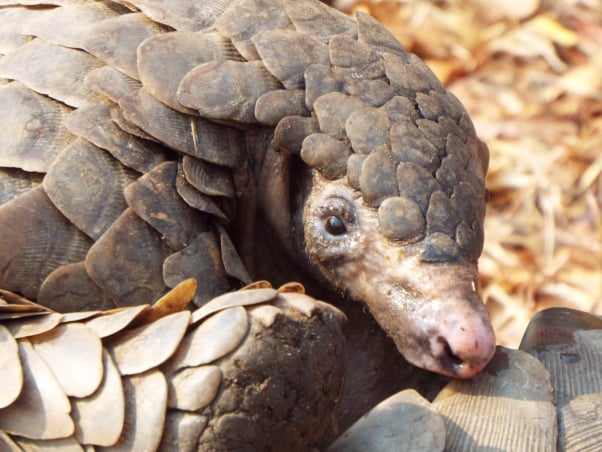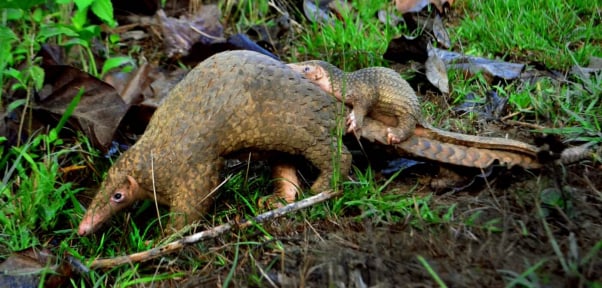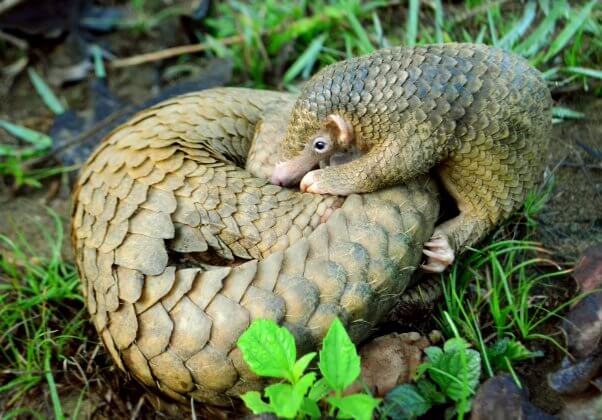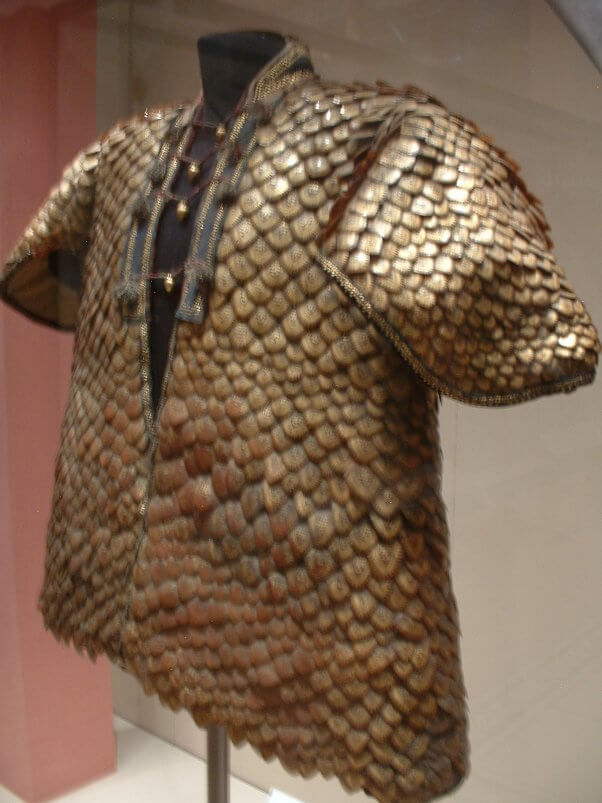Pangolins: Hunted for Meat and Traditional Medicine, Blamed for COVID-19
There’s a good chance that you’ve never heard of the shy, solitary pangolin, but if you have, it was likely in the context of the COVID-19 crisis. Experts believe that the novel coronavirus originated in a Chinese “wet market“—a market selling live and dead animals for human consumption. There, pangolins were sold for soup.
What Are Pangolins?
Although you might guess that they’re reptiles, pangolins are actually mammals. There are eight different species—four Asian and four African. Like human mothers, pangolin moms nurse their babies.
The pups are even known to hitch rides on their protective mothers’ tails until they’re weaned.
Pangolin pups nurse for about three months, and they typically remain by their caring mothers’ sides until they’re about 5 months old—then, they go it alone.
Here’s another fun pangolin pup fact: They’re born with soft scales, which harden within a few days. It’s these distinctive scales that earned pangolins their nickname, “the scaly anteater.” (Like anteaters, they have long snouts and tongues—plus, they eat ants.)
What Are Pangolin Scales Made Of?
This is neat: The pangolin is the only mammal completely covered in scales, which they use for personal protection. Their scales are made of keratin—the same stuff that makes up human hair and fingernails.
What Are Pangolin Scales Used For?
It’s because of these unique scales that the pangolin is exploited and considered the most trafficked animal in the world.
Like tigers for their bones and rhinos for their horns, pangolins are poached, traded, and killed for their scales and flesh.
Pangolin scales are sometimes used for traditional Chinese medicine, even though China has passed laws to protect these animals. Their scales and skin are also used to make clothing, shoes, and fashion accessories.
Pangolins—who, when left in peace in their natural habitat, prefer to keep to themselves—are also hunted and killed for meat.
Pangolins and COVID-19
Humans’ selfish, speciesist treatment of these animals could be the very reason why the novel coronavirus exists. Since experts have suggested that pangolins may be the reservoir species for COVID-19, the scaly anteater has been catapulted into headlines, news reports, and conversations—and some are calling COVID-19 “the revenge of the pangolin.”
When not exploited by humans, pangolins lead interesting, private lives.
There’s only one thing that brings pangolins together in their natural habitats: mating. When not reproducing, these scaly mammals prefer to be alone. Although they’re often likened to anteaters, they’re more closely related to cats.
Like the cats we share our hearts and homes with, pangolins deserve respect and consideration.

When they feel threatened, pangolins curl up into tight balls (like armadillos). They also use their sharp claws and release a foul-smelling fluid as a defense mechanism, similar to what a skunk does. But even these remarkable characteristics can’t protect these animals (some of whom are endangered species) from the biggest threat of all: humans.
The only animal who can be blamed for COVID-19 and other deadly zoonotic diseases is humans.
It shouldn’t take a global health crisis to change the way we treat animals, but we could all learn something from the COVID-19 outbreak, anyway.
Whether a pangolin or a rat or a pig or a dog or a child, each animal is worthy of our compassion. No one belongs in a wet market, on a plate, in a closet, or anywhere else besides in their natural habitat.




